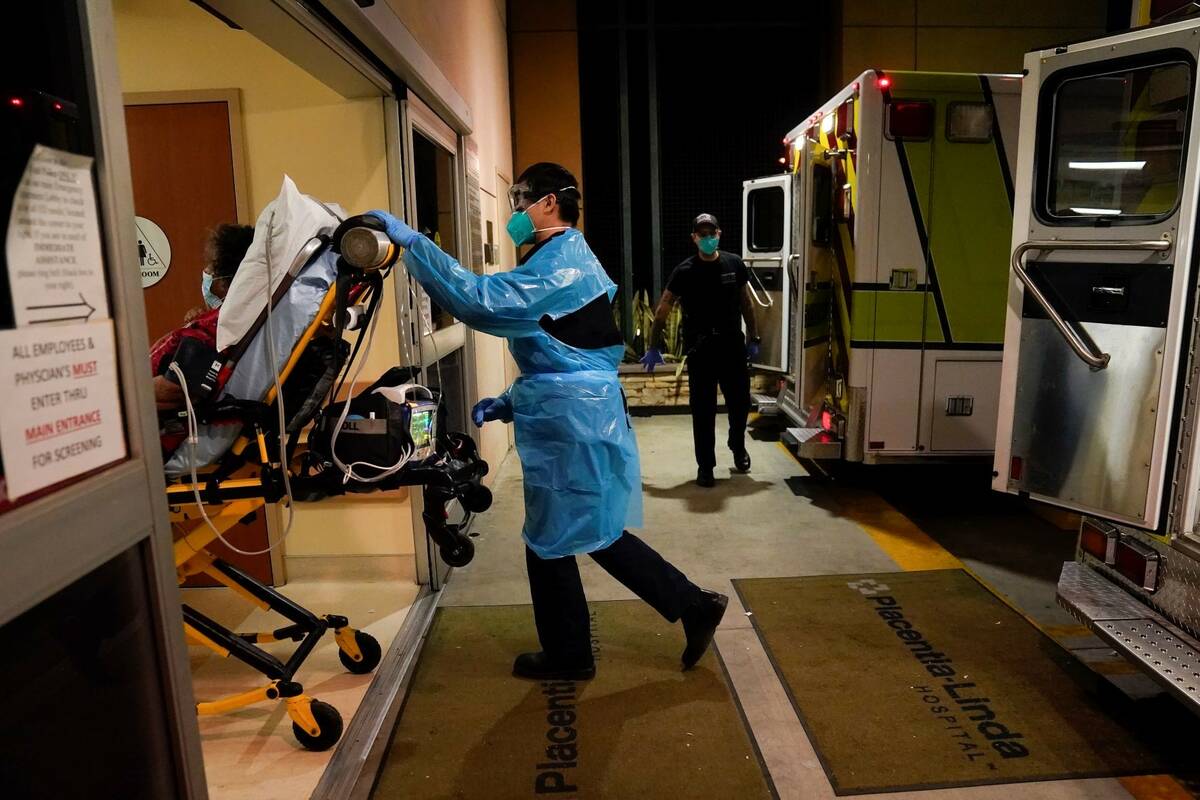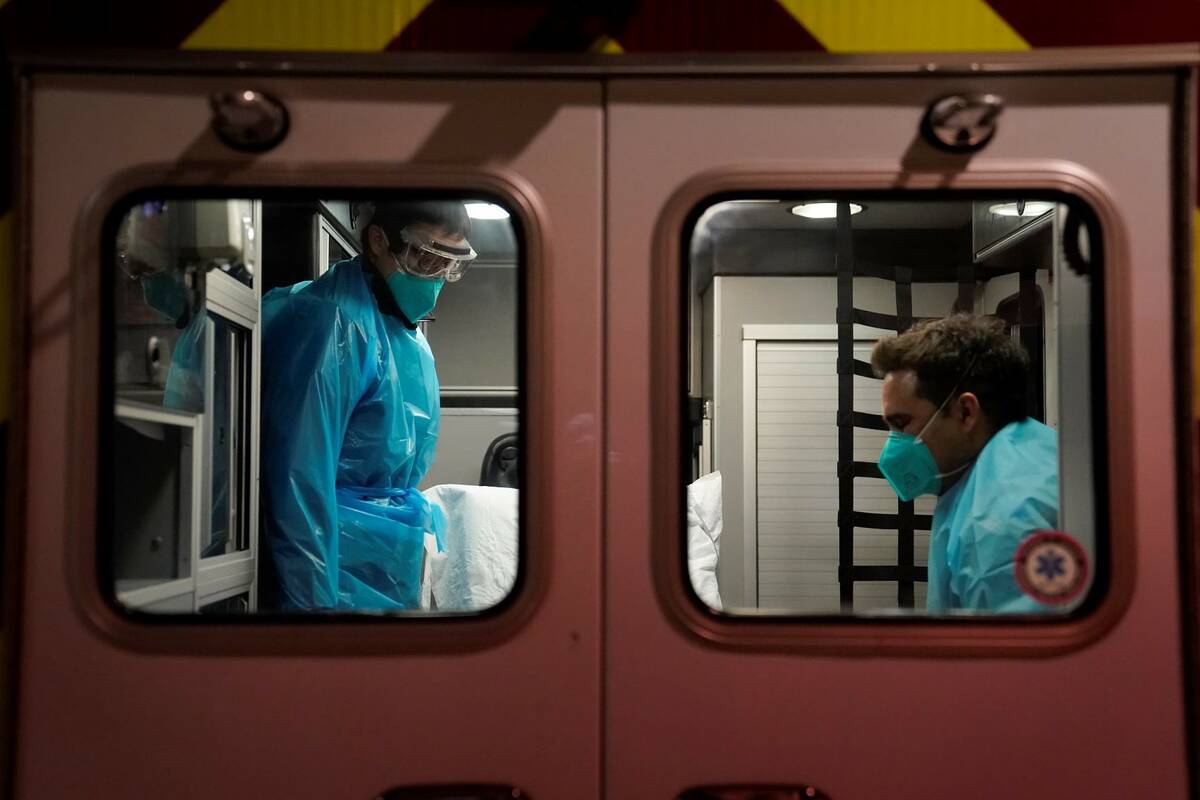California ambulances wait hours with patients at hospitals
Emergency health workers in California Wednesday blasted hours-long waits to transfer patients from ambulances to hospital emergency rooms in what they said were chronic delays worsened by the nearly two-year coronavirus pandemic.
During a legislative hearing, first responders said taking more than the anticipated 20 minutes to receive a patient at a hospital emergency room isn’t good for the patient and impedes their ability to head out on new emergency calls. Often, they said, they wind up waiting hours at hospitals because no one is available to receive new patients — a problem that doctors and a hospital administrator said stems from delays in lab work, X-rays and insurance authorizations.
Dr. Clayton Kazan, medical director at the Los Angeles County Fire Department, said hospital challenges shouldn’t paralyze the 911 system intended for the most critical emergencies. He said the system isn’t sustainable and is even more strained under the pandemic. Hospitals should be held accountable for stalling, and not all patients should be sent to hospitals for triage, he said.
“We’re in a disaster. It’s been going on for two years. It’s a slow rolling disaster,” Kazan said during the hearing of the Assembly Committee on Emergency Management in Sacramento. “It’s the equivalent of a plane crash every couple of days in my county alone, but every day we still have critical patients waiting for an ambulance at the scene of their emergency.”
Omicron surge
While delays have long plagued the relationship between ambulances and hospitals in California, the problem has been exacerbated by the COVID-19 pandemic. California is seeing a rise in hospitalizations following a spike in omicron variant infections that began late last month. More than 15,000 people were hospitalized with the virus on Wednesday — an increase of 89 percent from two weeks ago.
There have been some signs that infections could be slowing in the state of nearly 40 million people, such as sewage testing in Northern California that showed less prevalence of the virus. But health officials have said hospitalizations won’t likely peak until the end of the month, and hospitals are bracing for even more strain as their own workers have also been sidelined by coronavirus infections.
The omicron variant spreads even more easily than other coronavirus strains, but early studies show it is less likely to cause severe illness than the previous delta variant and vaccination and a booster still offer strong protection from serious illness, hospitalization and death.
Dr. Lori Morgan, president and chief executive of Huntington Memorial Hospital in Pasadena, California, said emergency room overcrowding has become common during the pandemic following a rise in non-urgent use of emergency departments for issues such as behavioral health and homelessness support. She said she also faces obstacles to discharge patients such as a lack of post-acute care beds and insurance delays.
On Wednesday, Morgan said she had 18 patients clinically ready for discharge but nowhere to send them. Meanwhile, eight in the emergency room needed to be admitted and another 15 were expected to follow, not counting patients in ambulances waiting to get in, she said.
“There is not a silver bullet,” she said.
‘Nothing short of criminal’
First responders were adamant that hospitals need to do more to receive their patients quickly, enabling them to respond to more calls, a well as take breaks and lunch. Several speakers suggested fining hospitals for failing to receive patients more quickly, or giving them economic incentives to do so, as well as ways to treat more non-acute patients through outside programs or in other settings beyond emergency rooms.
Sacramento Assistant Fire Chief Eric Saylors said every time ambulances are tied up with patients at hospitals he sees response times in the community go up. Last week, he said a patient stopped breathing near a hospital where two ambulances were waiting with other patients for more than an hour. Another ambulance that was 8 miles away drove over to transport the patient to the hospital, he said.
“These are taxpayer resources that are being used right now to staff hospitals,” Saylors said. “This is nothing short of criminal.”
During the hearing, other ideas were float to reduce the delays, including freeing up hospital nurses from some paperwork requirements and staffing ratios. Vicki Bermudez of the California Nurses Association pushed back, saying other states face similar delays and don’t have staffing ratios that ensure quality patient care in California and help prevent nurse burnout at a time when they are critically needed.











































